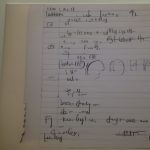Immediate Reinforcement Tips for Better Learning

That’s where immediate reinforcement comes in to play. By using summarization and recalling key facts as soon as you’ve heard them, you can more easily internalize important educational materials. Here are a few tips for how to do it best:
1) Find a new environment separate from the one where the material was first presented.
Say you’re in a classroom. You’ve just finished taking notes, watching a video or reviewing a quiz. The bell rings. You hit the hallway. If you don’t have another class, then you should get to a bathroom, empty classroom or parking lot/car right away. In that environment, tell yourself everything that you just learned over the class period.
2) Use electronic brains to help your own.
For better results to the method above, use free Dragon Dictation software on your iPhone or Android device and recite all the information into the recorder. Then, email the notes to yourself from the application. Or, simply use a voice recorder and listen to these “summaries” later during longer study sessions. You’ll find that memory stores a great deal more about the original class period than originally thought.
3) Write from memory.
By getting the information out there as soon as you’ve heard it, you will give your brain more identifiers of key events and quotes from the class or learning session itself. When you revisit your “electronic brains” two weeks down the road before that big test, hearing or seeing this old information while it was still fresh, results in greater recall of vital information that otherwise would have been forgotten.
While a new environment immediately after the learning session can help, as can technology, writing is an important part of the learning process, because it ensures that you slow down and replay the events as they occurred. It forces your mind to stop racing and to start legitimizing the things that it has just heard.
Typing out your handwritten notes immediately after class, forcing yourself to write a 500-1,000-word summary on everything you heard right after you heard it (without looking at the notes), and handwriting your notes to a clean sheet of paper, are all great ways of beefing up your memory.
As you consider a study plan for any kind of test—whether it’s a chapter quiz or the LSAT—make sure that you take time away from the point of learning immediately after hearing concepts and information for the first time. Give yourself a time and a place, and use that freedom for immediate reinforcement. You’ll be surprised at how much you retain when you need it the most.








